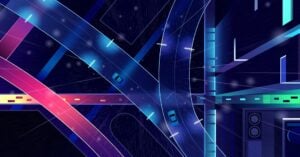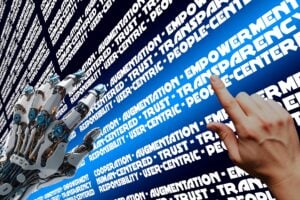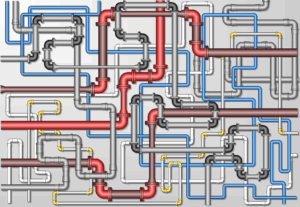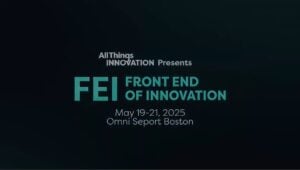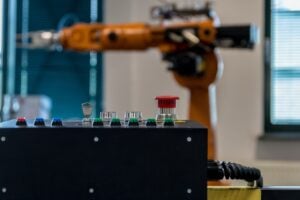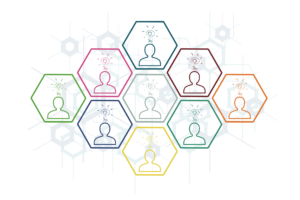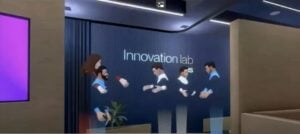As an expert at early startups, can you just tell us a little bit more about that space, such as your thoughts on challenges and opportunities?
“It’s funny you say early. I’m interested in when a startup is brand new and so I distinguish that,” says Vladimer. “My expertise is on the nascent stage, which I define as when someone, a founder, has the kernel of an idea for a startup business, but they have no customers, no product, and no funding. I distinguish that from an early-stage startup that has initial customers, product and funding. In the past, it made a lot of sense for founders to kind of blend the two and blur those lines.”
He continues, “The reason that was so important was historically, if we wanted to do a startup, our limiting factor was funding. We could not buy servers for less than tens of thousands of dollars, for example. What that bought you in terms of technology 20 years ago is drastically different than what it buys you today. My argument is what you used to need $100,000 for just as table stakes to start your startup, you can now get for less than a $100 today.”
Vladimer observes, “The world of entrepreneurship, the world of innovation, everything changed on the magical date of April 23, 2015. Nobody knows what happened on that day. That was the day that Amazon first released standalone revenue results for AWS (Amazon Web Services). Technology is getting better and cheaper. But the reason I think that day is so special in my mind is that’s the inflection point. Of course, people were using cloud services before that. But if you look at all the headlines then, everyone’s losing their mind that it’s a billion-dollar industry. Now it’s like tens of billions just for Amazon alone, it’s like $80 billion, I think.”
An Innovator Mindset
“In present day, if we want to start a company, what do we need to focus on?” asks Vladimer. “Should we build a product, there’s no question. The answer is it used to be that we needed someone else’s money and now we don’t. Amazon and everything else that’s followed has completely changed the priorities of founders. Back when funding was the most important aspect, then you wanted to fake it until you make it. You don’t have to do that anymore. You don’t want to say that you just have the kernel of an idea. No founder would ever want to go to investors and say, I just started. I’ve got the kernel of an idea; would you fund me? It’s a different world now. You don’t have to rely on investors.”
Speaking of investors, venture capitalists or private equity investors, isn’t that part of the atmosphere nowadays for startups?
“I’m at the nascent stage, and so the thing that I tell founders is there’s a lot of investors that want deal flow,” he says. “There’s a lot of cultural push within innovation, within entrepreneurship to go to demo days, to go to pitch days, to talk to angel investors, to try to pitch for funding. At least at the nascent stage when a founder has just the kernel of an idea, one of the most important pieces of advice that I offer the founders that I mentor is do not talk to investors right now. They’re a distraction. The most important investor for a founder with a nascent stage startup is the founder. It’s completely shifted from this external focus to an internal focus.”
Breakthrough Advice
What is your advice for that innovator or founder in terms of their new product or service?
He notes, “Innovation means a lot of things to a lot of people. As a founder, you’re worried about at least five things. You need a product that solves a problem. You need a market of customers that have that problem. You need a team to build the business. You need a way to access those customers. You need funding to pay for all of it. Funding used to be the most important, now it’s not. So what’s the most important? Trying to discover a new market of customers. You can try to create a new type of established business, or you can create a breakthrough business.
“What do I mean by established business? If we want to open a laundromat or a pizza shop or anything where most of the knowledge exists, you can go work at a pizza shop or laundromat, figure out how the business works, and then go start your own thing. That to me is not innovation. Innovation is much more like a breakthrough. There’s a breakthrough on the customer side or there’s a breakthrough on the technology side. A breakthrough on the customer side is there’s this new thing called a smartphone. Who would think that somebody would want to use that to get a taxi? That’s Uber.”
He adds, “The other type of innovation is what I would think of as technology innovation. Everybody agrees that there is a big expensive problem. We all desperately want a solution, and we just haven’t gotten there yet. A good example of that is Ozempic. Everyone knows that people want to lose weight. Everyone wants a magic solution to it. And Ozempic was this amazing technological breakthrough to solve this obvious market problem.”
Advancing Affordable Intelligence
What are your thoughts on the outlook for 2025 in in terms of startups or innovation, or whatever lens and filter you want to use?
Vladimer says, “We’re knee deep right now in the hype cycle for generative AI. It’s a great solution and everyone’s kind of rushing to find compelling problems that it solves. I’m sure it’s going to continue to grow but some startups are going to fail. It’s just the typical way. But the thing that I would say for 2025, it’s in some ways the same as 2015 or 2005. We live in an amazing time in human history.”
“What happened about 20 years ago was an inflection point very similar but instead of affordable energy now we’re in the age of affordable information. As entrepreneurs, as founders, as innovators, we went around with our feelers out trying to find compelling problems to solve where we said, that’s how you’re gathering all this information on paper and pen? That’s the silliest way to possibly do it, but it’s the best way you could do it so far. Let me tell you about these amazing things called computers. For the last 20 years, we have been looking for these opportunities in the world of innovation of information, of affordable information.”
Vladimer adds, “I think it’s going to continue into 2025. What’s interesting now with AI is that we’re on the cusp where we just started in this world of affordable intelligence. Affordable energy, affordable information, and now it’s affordable intelligence. It’s not just how do I gather data at scale but how do I now analyze information? There’s going to be a lot of entrepreneurs trying to find those problems and then apply AI against it.”
For more of the interview with Mike Vladimer, check out the video from FEI 2024. Editor’s note: Vladimer offers a blog and a newsletter which can found at https://www.nascentstartups.com/.
Contributor
-

Matthew Kramer is the Digital Editor for All Things Insights & All Things Innovation. He has over 20 years of experience working in publishing and media companies, on a variety of business-to-business publications, websites and trade shows.
View all posts

